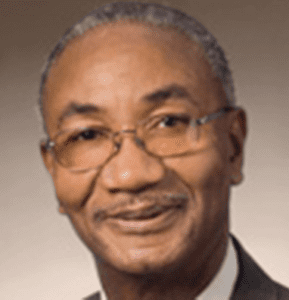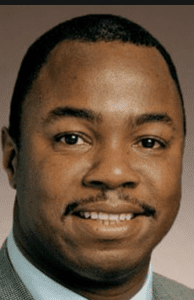The old and new are clashing among Tennessee’s House Democrats as they try to gain a foothold in the state’s political landscape.
Whereas the West Tennessee mafia made up mostly of rural Democrats controlled the state’s politics for decades, they’re scratching for relevance in the 2020s with only 24 of 99 seats in the House. They spend most of their energy trying to be heard, much less pass bills.
But with the advent of activists, Rep. Justin J. Pearson of Memphis and Rep. Justin Jones of Nashville, they’re finding themselves in their own tug-of-war.
Nowhere is it clearer than the rift between Pearson/Jones and veteran state Rep. Johnny Shaw, a Black lawmaker from rural Bolivar who doesn’t agree with their strategies, even though they upset the status quo and garnered international attention that led to fundraising coups.
Shaw was the only Democrat to vote last week in favor of new House rules designed largely to control the protesting duo, and as a result he could be among the first Democrats this year to face a primary opponent funded by Pearson and Jones as they try to reshape the caucus to their liking.
Shaw told the Lookout he isn’t “totally OK” with the rules but contends the “confusion” that’s erupted in the House since Jones and Pearson took office has “hindered” many Democrats from expressing themselves and “getting things done” for their districts.

Shaw, who voted for Republicans Glen Casada and Cameron Sexton to be House speaker, acknowledges he’s “willing to bend a little bit to get a little harmony” and notes he couldn’t have stopped the new House rules from taking effect. He’d also like Republicans to give a little, which is unlikely.
The new rules give lawmakers two strikes for being out of order or going off-topic before a vote to ban the member from speaking for two legislative days; limit speakers to five minutes; require parliamentary inquiries to be registered instead of discussed; prohibit crowding around the speaker’s dais and the well; and allow the speaker, in talks with caucus leaders, to determine which bills will be debated for up to 60 minutes, giving each party 30 minutes to talk with caucus leaders deciding who speaks.
Shaw points out it is “obvious” the rules are designed to keep Jones and Pearson under wraps but says the duo won’t talk to him about how to progress.
“When this all began, Justin and Justin wanted to be expelled, and I think all of us were working hard to try to keep them from being expelled,” Shaw says.
After holding a kangaroo court last year, Republicans booted Jones and Pearson — but narrowly kept Rep. Gloria Johnson of Knoxville — for violating rules of decorum in taking over the chamber and initiating a rally against gun violence in the wake of the Covenant School shooting that claimed six lives in Nashville. Metro Nashville and Memphis city councils returned them to their House posts less than a week later, and they won election again last fall. Yet another blow-up took place in the House on the last day of the August special session.
Shaw further says he believes Jones and Pearson “like the cameras,” which is OK, but he notes, “when you’re on camera, you need to be getting something done other than causing a lot of confusion.”
Black lawmakers have worked for years to move the Legislature in a “different direction,” Shaw says. “You don’t get up and trash people every time you stand up and expect to get something done,” he adds.
Shaw admits he’s concerned about facing a primary opponent this year. However, the veteran minister says, “I’m a man of faith who believes if you do what’s right, my mom used to have a saying, if you do what’s right, right will follow you.”
If he loses, then so be it.
“All I can say is the chaos needs to stop on both sides, but it takes both sides to stop the chaos,” Shaw says.
I’m not serving in the Tennessee General Assembly to be silent or be silenced because that is thwarting the democratic principles and ideals associated with the First Amendment but also associated with a representative democracy.
– Rep. Justin J. Pearson, D-Memphis
Reached for comment, Pearson says he has respect for Shaw, not only because of his experience as Black lawmaker but “as a Black American in this country over the course of his lifetime, which extends well beyond my years to a time period and era in American history of legalized subjugation of Black people.”
Nevertheless, Pearson, a Memphis Democrat whose PAC made a large independent expenditure last year for failed Memphis mayoral candidate Van Turner, says he and Shaw differ in how much they trust “an institution rooted in white supremacy and white patriarchy” to change and become a plan of “justice, freedom and respect.”
Pearson says he disagrees with Shaw and other members in the Democratic Party who feel silence and patience will improve efforts on issues such as gun violence, helping the poor and standing up for areas where the state has failed to invest. He uses words such as “docile” and “acquiescence” to describe lawmakers such as Shaw.
“I’m not serving in the Tennessee General Assembly to be silent or be silenced because that is thwarting the democratic principles and ideals associated with the First Amendment but also associated with a representative democracy,” Pearson says.
Pearson argues that at least two provisions in the new House rules eliminate debate and votes at the same time Republican leaders say more debate is needed.
With an eye toward 2024 elections, Pearson says he is looking for candidates statewide who “align with a vision of a more just Tennessee,” people interested in stopping gun violence and working for the poor.
“I do not believe that people who are silent are going to continue being of service to the people of their districts because the people in their communities do not want the status quo to continue,” he says.
In other words, if Shaw doesn’t become more militant, Pearson is going to fund a primary opponent in District 80, which takes in Hardeman and portions of Haywood and Madison counties.
Shaw isn’t the only one likely to face a primary opponent.
Rep. Joe Towns, a veteran Memphis Democrat, was recorded as abstaining on the House rules vote. Towns, though, says he was absent that day because of a prior commitment, but apparently nobody turned in a request for an excused absence.

Towns was critical of Pearson’s and Jones’ House floor rally in 2023, practically berating them afterward.
He tells the Lookout, “A lot of the rules are becoming more and more extreme because of the situation.”
Towns also argues the situation with the rules getting tougher for Democrats started before Jones and Pearson arrived. In most cases, Democrats would be given opportunities to speak, but after a short debate, a Republican would use a procedure dubbed “calling for the question,” to cut off debate and hold a vote.
“It’s going to backfire eventually because you can’t continue to suppress the public,” Towns says. He argues it can be even harder to speak on a bill in committees than on the House floor.
“You create a volcanic eruption because there’s going to be a groundswell,” Towns says, adding “democracy requires hearing all the crap you don’t want to hear.”
One wonders, however, whether Towns and others will be among those targeted for a primary opponent when the 2024 election commences.
It helps to know somebody
A teacher literacy training contract the state signed with New York-based TNTP Inc. in 2021 for $8 million jumped to $16 million and soon could rise to more than $21 million through 2026. The Legislature’s Fiscal Review Committee is set to consider the move.
Under the guidance of former Education Commissioner Penny Schwinn, the state inked the initial deal with TNTP coming out of the COVID-19 pandemic while Schwinn’s husband worked for the company. The former commissioner, who parachuted out of Tennessee last year, had to work out a “mitigation” plan with the state purchasing office to make sure she avoided a conflict of interest.
The initial contract process started before the Legislature held a special session to approve funding for the teacher training program. In fact, lawmakers held it up because they were worried the Education Department was trying to steer a contract to a certain vendor.
Sen. Todd Gardenhire, chairman of Fiscal Review, said Schwinn was “overly aware” of the “optics” in December 2021.
Now that she’s gone, Education Commissioner Lizzette Reynolds is recommending the state keep the contract going. Maybe TNTP is doing a good job.
But the way it got the contract sure didn’t pass the smell test.
Is this live or Memorex?
A first glance at scenes from Education Commissioner Lizzette Reynolds’ first hearing before the Senate Education Committee looked more like a Saturday Night Live skit than a legislative hearing.
Reynolds, who is in her seventh month on the job, stumbled over answers, battled for words, waved her arms wildly and handed off tough questions to staff. Considering the complex system Tennessee is using to figure out how well third-graders are reading before they can advance to fourth grade, she probably made the right move on that one.
But a more in-depth look at the meeting wasn’t quite as alarming as a spliced-together video that surfaced on the X.
Senate Education Committee Chairman Jon Lundberg says he’s comfortable with Reynolds’ knowledge of topics the Legislature will be considering this year, based on several conversations they’ve had. Senate Minority Leader Raumesh Akbari also says she believes Reynolds had a “firm grasp” of the issues, though she doesn’t agree with all the programming.
Still, it’s pretty clear why the state hasn’t allowed Reynolds to be interviewed by the media. While her talk is easier to understand than Schwinn’s edu-babble, Reynolds is comparable to other new commissioners such as Frank Strada in corrections who needs bodyguards to fend off intrepid reporters and Ralph Alvarado in health who runs like a scared rabbit from the media.
The Tennessee Journal reported Reynolds, who isn’t a licensed teacher, fails to meet the guidelines for being an education commissioner, which requires her to have “skill and experience” in school administration and qualifications to teach in the 12th grade. She’s reportedly taking courses at UT-Martin to boost her credentials.
And while I’m at it, why does Gov. Lee think it’s necessary to go out of state to find these new commissioners? Can’t he find anyone from Tennessee to do his bidding for private school vouchers?
Granted, Reynolds inherited a mess from Schwinn in the way of a new A-F grading system for schools, which was passed in 2016 incidentally but is just now taking hold. But good grief, Tennessee education needs someone who can articulate the reasons we’re preparing to spend tens of millions of dollars to pay rich kids’ private school tuition.
Then again, it might be impossible to find someone who can make that argument with a straight face. Never fear: Maybe they can tap a motivational speaker who’s “living in a van down by the river.”
The article in this post was originally published on Tennessee Lookout and parts of it are included here under a Creative Commons license CC BY-ND 4.0








